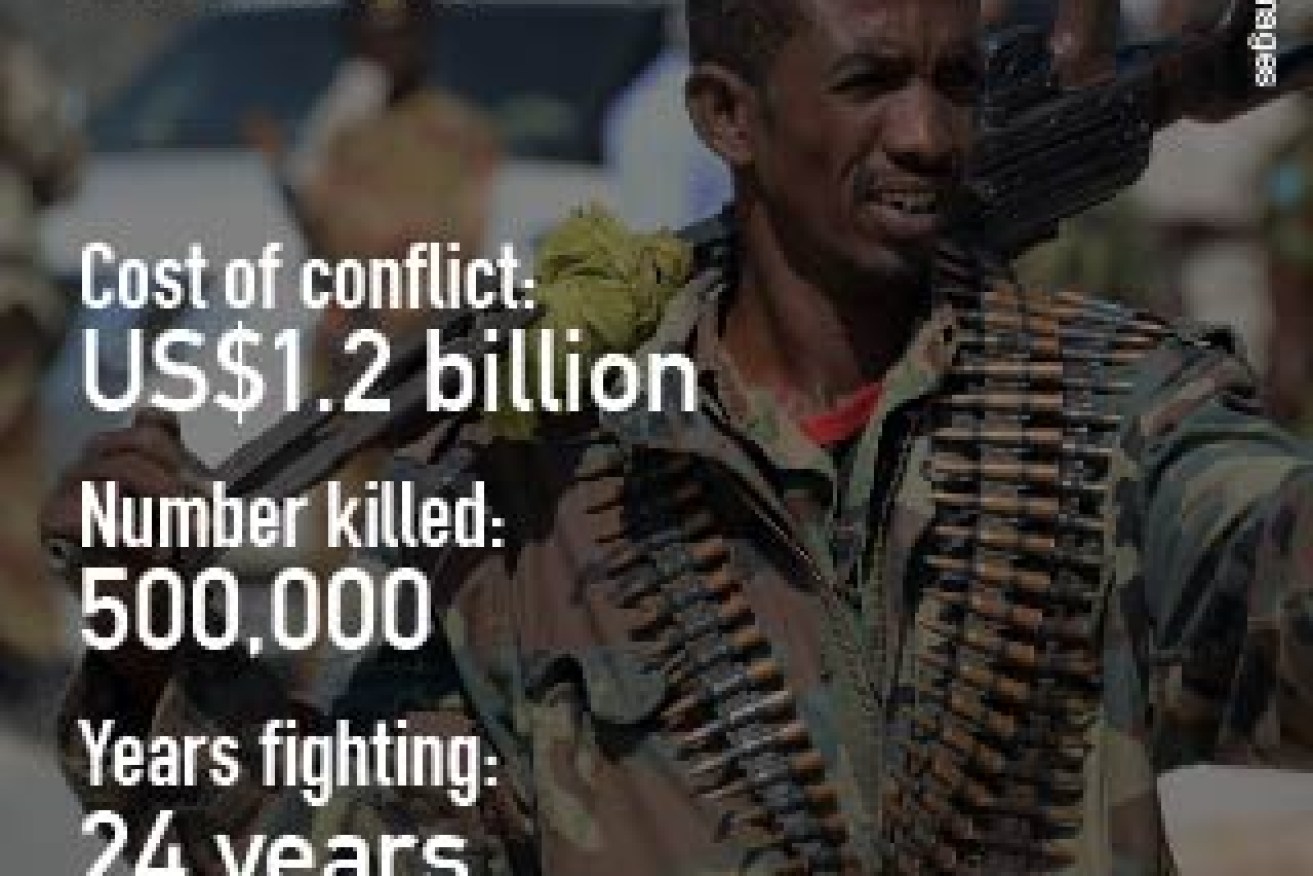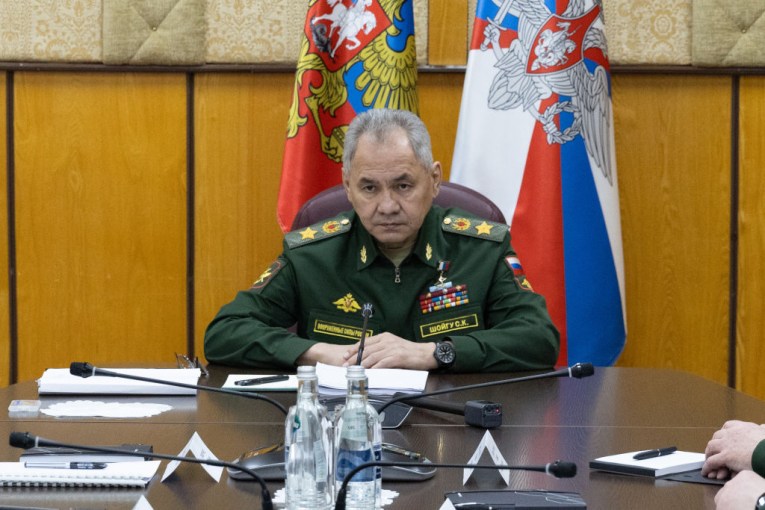These are the most dangerous places on Earth


While the eyes of the world are fixed on the atrocities of the so-called Islamic State in Syria and Iraq, new data has highlighted many other places around the world where peace remains elusive.
As a whole, there is less conflict now than when World War Two ended, but The Global Peace Index highlights several remaining hotbeds of violence, terrorism and civil strife.
Globally, conflict costs US$14.3 trillion, or 13.4 per cent of global GDP, which is equal to the combined economies of Brazil, Canada, France, Germany, Spain and the United Kingdom, the Institute for Economics and Peace stated.
One of the most violent nations on the planet is Nigeria, where thousands of people have joined a force to battle Islamist militants in the African country’s northeast by physically blocking and removing suicide bombers from populated areas.
• Boko Haram is raping women to breed an army
• Niger, Chad troops attack Boko Haram in Nigeria
• Militants threaten malls
More than 600 members of the Civilian Joint Task Force have died in their attempts to save other innocents, Nigeria’s Leadership newspaper reported.
Boko Haram has led the insurgency, which is trying to mark out an Islamic state in the country.
On July 24, a 12-year-old walked into the grain section of a Nigerian market and detonated a bomb in the latest Boko Haram attack.
Many central African countries are in the grips of conflict, some suffering terrorism, others in the grips of anarchic survival struggles.
Where are the 20 worst places on earth? Click the owl to see
Meanwhile, China chooses to invest in African countries; European and American companies are also looking to Africa for future growth.
But when Australia (the ninth most peaceful country in the world) talks terror, Paris, London and New York come to mind. Afghanistan, Iraq and Syria are our military focus.
Out of 162 countries, Syria has had the least peace for the past two years, which should come as no surprise given the civil war that is slowly partitioning it between rebels, government forces and Islamic State.
Closely following Syria this year is Iraq, which has dealt with war, sanctions, insurgency and civil war since 1991.
While indexes like global peace reveal some broad pointers on where not to take your next job, it has also come under fire for rating peaceful but authoritarian Djibouti as more peaceful than democratic South Africa, which admittedly has a crime problem, Western Cape University political scientist Keith Gottschalk said.
South Sudan (4th least peaceful nation in the world), Sudan (7)
 In 1955 an insurgency in the south of Sudan marked the start of a civil war that raged until 1972 and restarted in 1983 seeking to split from the northern region, the BBC reported. A peace plan was reached in 2005 after four million people had been displaced and 1.5 million killed.
In 1955 an insurgency in the south of Sudan marked the start of a civil war that raged until 1972 and restarted in 1983 seeking to split from the northern region, the BBC reported. A peace plan was reached in 2005 after four million people had been displaced and 1.5 million killed.
In 2005 the two factions reached a peace agreement and in 2011 the country split into Sudan and South Sudan in line with a referendum.
The economy
While South Sudan is rich in oil, and has agreed to share its wealth with Sudan, the country remains among the least developed in Africa.
Has it improved?
Yes. Sudan has risen from 157 to 156 on the peace index over the past two years, but South Sudan dropped from 159 to 160 at the same time.
Central African Republic (5)
 Life hasn’t been easy in the CAR, as illegal weapons proliferate, enabling frequent outbursts of unrest. This former French colony has been through coup after coup since its independence in 1960, according to the BBC.
Life hasn’t been easy in the CAR, as illegal weapons proliferate, enabling frequent outbursts of unrest. This former French colony has been through coup after coup since its independence in 1960, according to the BBC.
Much of it has been a merry-go-round between David Dacko, who decreed CAR a one-party state immediately after taking office, and his former army commander Jean-Bedel Bokassa who named himself emperor in 1976. But not for long, in 1979 Dacko returned backed by French forces and Bokassa was punted into exile.
After some stability from 2008 to 2012, an army marched south on the capital in March 2013, now the UN has warned of a strong chance of genocide.
The economy
The Central African Republic is one of the least developed countries in the world. Diamonds are the main source of income and unfortunately, rivalry in a country blessed with untapped natural resources.
Has it improved?
No, the Central African Republic has shifted down the Global Peace Index from 156 to 158 since 2014.
Somalia (6)
 In 1991 Somalia fell into anarchy after President Said Barre was overthrown. It created a government in 2000 under president Abdulkassim Salat Hassan, but it made little progress.
In 1991 Somalia fell into anarchy after President Said Barre was overthrown. It created a government in 2000 under president Abdulkassim Salat Hassan, but it made little progress.
It has had two famines where half a million people died in 1992, and 2010-2012. Islamist militants gained a foothold in Somalia in 2006 and Al Shabab took the capital Mogadishu in May. During the latter part of the anarchy in Somalia, the country was a leaping-off point for pirates which sparked an international response that bore fruit in 2012.
But the biggest gains against the turmoil were made in 2011 when Kenyan troops routed the Islamists.
The economy
Al Jazeera’s country profile of Somalia suggests untapped natural resources including energy and minerals, but fishing and agriculture dominate the economy there. Money sent home from expat Somalis also make up a “substantial” amount of gross domestic product, as does ransoms from kidnappings and piracy.
Has it improved?
Yes, Somalia has risen a step from 158 in 2014 to 157 on the peace index in 2015.
Democratic Republic of Congo (8)
 Considered the epitome of the story of an African country shedding colonialism, what was the Belgian Congo became Zaire under cold-war dictator Joseph Mobuto.
Considered the epitome of the story of an African country shedding colonialism, what was the Belgian Congo became Zaire under cold-war dictator Joseph Mobuto.
The country has been left fearful after the genocides in the late 1990s of 800,000 Tutsis at the hands of Rwandan Hutus. That upheaval sparked an attempt to remove Mobutu, which involved about seven months of conflict and Laurant Kabila taking over as the new ruler. He changed the country back to the Democratic Republic of Congo.
From 1998 to 2002 the DRC was a battleground drawing in nine countries and 20 armed groups. The war claimed up to six million lives from fighting, disease and malnutrition. Unrest continues.
The economy
DR Congo is among the largest African countries and contains oil and mineral wealth. Agriculture
Has it improved?
Yes, the DRC has improved its peace rating but not enough to push it up the index. It has been 155 on the peace index for two years.
Nigeria (12)
 This former British colony has had its share of coups and government instability but since 2009 it has been coping with the Boko Haram Islamist militancy in the country’s northeast.
This former British colony has had its share of coups and government instability but since 2009 it has been coping with the Boko Haram Islamist militancy in the country’s northeast.
The Global Terror Index rates Nigeria fourth-worst in the world, ahead of Syria. The country is split 50-50 into the northern states, which practice Sharia law, and the southern states which include the oil-rich Niger delta. The oil business has been the target of activism since 2004 from campaigners seeking to gain a better share of the wealth for Nigerians.
This year brought a victory that tells Nigeria’s political story, in 2015 the country held its first election where an opposition candidate won.
The economy
Oil exports bring in about 80 per cent of revenue, which has been spent unwisely due to corruption and graft, Al Jazeera reported.
Has it improved?
Marginally. Nigeria has been 151 on the peace index for two years and its peace rating has slightly improved.






